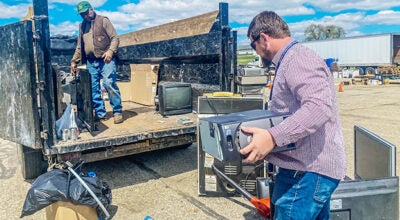Proos calls for disaster designation
Published 10:48 pm Thursday, April 19, 2012
LANSING – Sen. John Proos sponsored a Senate resolution Thursday urging President Obama and the U.S. Agriculture secretary to declare the Southwest Michigan fruit-growing region a disaster area in the wake of weather conditions that devastated grape production.
“A frost in early April destroyed an estimated 10,000 acres of Southwest Michigan grapes, approximately 95 percent of the region’s total grape crop,” said Proos, R-St. Joseph. “As a result, it is projected that grape farmers will lose more than $20 million for the 2012 season. I am imploring the president to help these farmers financially recover from this disaster by issuing a disaster area declaration.
“Declaring southwest Michigan’s fruit-growing region a disaster area will allow our hard-hit fruit and vegetable growers access to low-interest loans and other federal assistance.”
In 2010, Michigan produced 36,000 tons of grapes with a net value of $15.4 million. southwest Michigan grapes are used for juice and wine production around the country.
Welch’s Foods relies on Michigan growers for 17 percent of its grape supplies for its juice production. The company said the frost was the most devastating in Michigan history, and a Welch’s surveyor called it a “complete wipeout.”
Proos’ resolution notes that warm temperatures in 2012 wreaked havoc on the state’s grape, apple, and other fruit and vegetable crops.
It has negatively impacted the approximately one million residents that are employed by Michigan’s agriculture industry, which brings in about $64 billion a year.
The early warmth caused plants to sprout prematurely, putting them at risk of damage when devastating frost occurred in early April.
“Michigan’s agriculture community produces a wide variety of goods that have been devastated by the frost,” Proos said. “These crops represent a livelihood for the many families who rely on the state’s 50,000 farms. This declaration is a way of stepping up and helping our local farmers survive a natural disaster as well as the thousands of Michigan families and workers who absolutely depend on them.”






